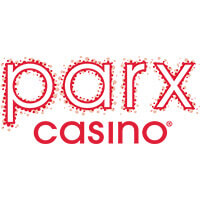Parx Casino Wants One Skin Per Pennsylvania Online Gaming Licensee
The process of launching an online gambling industry in Pennsylvania has been ramping up, as the Pennsylvania Gaming Control Board posted the licensing application on its website this month. That doesn’t mean that all the rules and regulations are set in stone already, though. Parx Casino, which was against online gambling from the get-go, won’t be sitting out, but it wants certain rules to be put in place. At the end of January, the casino wrote a letter to the PGCB, urging it to only allow each licensee to have one skin and to require that skin be branded like the casino which holds its license.
 The seven-page letter, penned by Bryan P. Schroeder, Parx Casino’s Vice President of Regulatory Affairs and the casino’s Chief Compliance Officer, is available to read on the PGCB’s website, but it was first brought to light by GamblingCompliance last week. It lays out several points on Parx’s wish list, but the primary one has to do with skins per licensee:
The seven-page letter, penned by Bryan P. Schroeder, Parx Casino’s Vice President of Regulatory Affairs and the casino’s Chief Compliance Officer, is available to read on the PGCB’s website, but it was first brought to light by GamblingCompliance last week. It lays out several points on Parx’s wish list, but the primary one has to do with skins per licensee:
The Board should establish a limitation on the number of interactive gaming skins an Interactive Gaming Certificate Holder (“Certificate Holder”) may operate, and that limitation should be one skin per Certificate Holder, with the different categories of interactive games the Certificate Holder is authorized to offer on that single skin limited to the different categories of interactive games approved in its Interactive Gaming Certificate(s).
Parx Casino’s explanation that follows that summary gets quite wordy, but it says that by allowing unlimited skins per license, the PGCB would indirectly be allowing casinos to get around the cap on state licenses. Right now, that cap is twelve – the equivalent of one per Pennsylvania casino – but that will go up to thirteen, as a Philly casino is going to be built.* If every licensee had multiple skins, it would almost be like increasing the number of gaming licenses.
Additionally, Parx believes this would effectively give operators who partner with the licensees a less expensive license in the Pennsylvania market.
The second point Parx makes in the letter also has to do with skins:
The Board should require that any branding associated with a skin match, or be predominantly the same, as the brand of the Certificate Holder as noted on the Interactive Gaming Certificate.
In a nutshell, the gambling site must be named after the licensee. So Parx Casino can’t have an online poker room named “One Eyed Jack Poker” or some other non-Parx-related name. Parx doesn’t really give much of a reason for this, but it could be just a “truth in advertising” sort of thing so that customers know what licensee they are trusting with their money.
It could also be, however, an indirect effort (along with the limitation on the number of skins) to keep well-known international operators like PokerStars from gaining a swift advantage. Some casino is going to partner with PokerStars, but Parx Casino likely doesn’t want that poker room to be NAMED PokerStars, as it could give that site an immediate advantage because of name-recognition. Sure, Pennsylvanians will know Parx Casino (or the other dozen casinos), but when it comes to online poker/gaming, they might immediately trust that a PokerStars site would be a good one from day one.
Limiting the number of skins and their names will allow Parx Casino, the leading casino in the Commonwealth, to be able to much better take advantage of its brand. Basically, Parx seems to want as little competition as possible from outside operators and as little dilution of the market as possible.
Thing is, New Jersey allows multiple skins per licensee and that state’s online gambling industry has been moving along quite nicely. Who knows if every casino in Pennsylvania would even apply for a license if such a strict limitation is put on skins? One skin per licensee on its face seems like a reasonable restriction, but it is also something that stifles competition and creativity. Perhaps a smaller, lesser-known casino has a multi-skin strategy its planning and won’t want to commit the millions of dollars in licensing fees if it has to be anchored down. Maybe a casino wants to grab a license and do everything it needs to do to stay in compliance but would love to partner with several established online operators and create a poker network. Who knows? But if a one skin per licensee rule could results in empty licensing slots, the state won’t be too happy.
*Not every casino has to have an online gaming license, it’s just likely setup this way so that each casino will be able to apply for a license if it wishes. If any licenses go unclaimed in the first wave of applications, outside operators can apply.



















COMMENTS